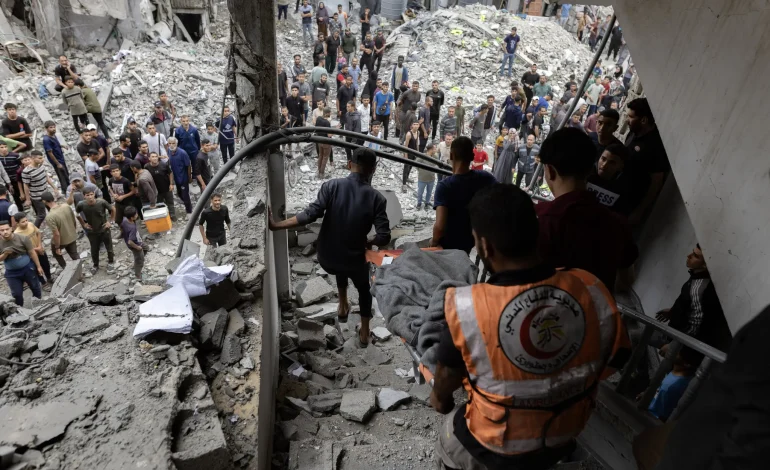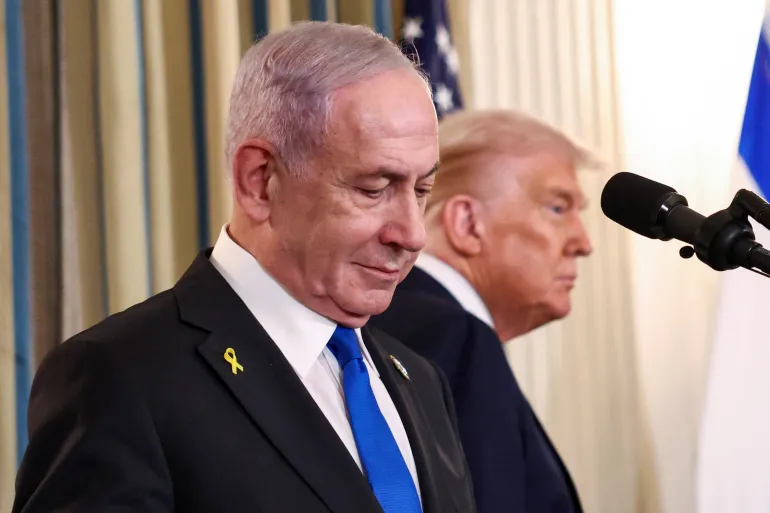EU Review Raises Human Rights Concerns Over Israel’s Actions in Gaza, Straining Bilateral Ties

Tensions between Israel and the European Union have deepened following the release of a formal review suggesting Israel may have breached human rights obligations under its partnership agreement with the bloc.
The findings, presented Monday in Brussels, cite a series of actions during Israel’s military campaign in Gaza, including restrictions on humanitarian aid and strikes on civilian infrastructure, that may contravene the terms of the EU-Israel Association Agreement.
The treaty, which has governed political and economic relations since 2000, is founded on mutual respect for democratic values and human rights. The European External Action Service, the bloc’s diplomatic arm, concluded that “there are indications” Israel may be in violation of Article 2 of the agreement, which outlines those core principles.
The Israeli government swiftly rejected the report, calling it “a complete moral and methodological failure.” In a formal response, Israel criticized the review’s methodology and questioned its ability to verify its own claims, while defending its restrictions on aid as necessary security measures to prevent weapons smuggling by Hamas.
The review, first initiated under pressure from countries like the Netherlands and Ireland, has sharpened longstanding divisions within the EU over how to handle the Israel-Gaza conflict. While some member states, including Spain and Belgium, have called for tougher action — including suspending the agreement or imposing an arms embargo — others such as Hungary, Austria, and Germany continue to support Israel and are unlikely to agree to punitive steps.
Spain’s Foreign Minister José Manuel Albares called for immediate action at Monday’s foreign ministers’ meeting, stating:
“This is the time for action. Every day, babies, women, and men are being killed. The time for words and declarations is behind.”
Any move to suspend the agreement would require unanimous consent among all 27 member states — a political hurdle that appears insurmountable at present. However, alternative steps that require a qualified majority, such as targeting individual sanctions or suspending academic and cultural partnerships, remain under discussion.
Israel launched its offensive in Gaza following the October 7, 2023, Hamas-led attack, which killed approximately 1,200 people in southern Israel and resulted in over 250 hostages. Since then, more than 56,000 Palestinians have been killed, according to Gaza’s Health Ministry, and the delivery of aid has been severely limited.
The EU review cited concerns over the restriction of food and essential goods, the high civilian toll from Israeli strikes, and damage to hospitals and medical facilities. Humanitarian agencies have criticized Israel’s handling of aid access, with some describing the measures as collective punishment. Israel has maintained that these steps are necessary to counter Hamas’s military capabilities and prevent the diversion of aid.
The diplomatic strain has been further complicated by Israel’s recent airstrikes on Iranian nuclear facilities, which have drawn the United States into direct military engagement in the region. While the EU has largely supported the principle that Iran must not develop nuclear weapons, officials remain divided over the scope and strategy of military intervention.
While the review’s conclusions may carry symbolic weight, they do not automatically trigger consequences. Legal and political constraints within the EU make sweeping punitive measures unlikely. Nonetheless, some member states are exploring limited actions — such as restricting visa-free travel for Israelis or targeting settlements in the occupied West Bank — that could signal growing disapproval.
European Commission President Ursula von der Leyen has announced an emergency meeting to discuss the Middle East crisis and its implications for European security. EU foreign policy chief Kaja Kallas underscored the need to maintain focus on both Iran and Gaza, noting that the bloc must consider “what more can we do” to uphold its principles.
The New York Times and the Associated Press contributed to this report.









The latest news in your social feeds
Subscribe to our social media platforms to stay tuned